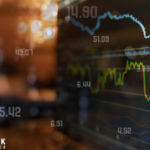Recent insider transactions reveal significant investments in two initial public offerings and additional purchases by CEOs of financial firms facing challenges. These actions can offer valuable insights into corporate confidence and potential future stock performance. The information about these insider purchases can help investors make informed decisions and understand market dynamics.
Earlier instances of insider buying have often served as bullish signals for the market, as insiders typically purchase shares when they believe their company’s stock is undervalued. This trend has been seen in various sectors, including technology and healthcare. Previous high-profile purchases have sometimes led to increased investor confidence and subsequent stock price appreciation. However, it’s essential to note that not all insider buys result in positive outcomes, as individual company performance and broader market conditions exert significant influence.
Significance of Insider Buying
Corporate insiders and 10% owners generally buy shares because they anticipate a rise in stock prices, aiming to profit from their investment. This behavior can be particularly encouraging during market uncertainties or at peak market levels. It’s important to consider that with the new earnings season underway, many insiders are currently restricted from trading their shares.
In the past week, notable insider purchases included a biotech firm and an investment management company. Artiva Biotherapeutics, a San Diego-based biotech company specializing in hematologic cancer treatments, saw its insiders acquire over 13.7 million shares, totaling nearly $165 million. Concurrently, Pearl Diver Credit Company, a new investment management firm, raised $50.6 million through its IPO, with significant insider participation.
CEOs Backing Their Firms
Appian Corporation experienced further investment from Abdiel Capital, adding 190,000 shares worth approximately $6.7 million. This cloud computing and enterprise software company is set to release its quarterly results soon. Meanwhile, Truist Financial’s CEO, William Rogers Jr., invested over $2.5 million into the firm, showing confidence despite declining profits. Similarly, Charles Schwab’s CEO, Walter Bettinger, alongside another executive, bought around $2.2 million in shares. These acquisitions often indicate the executives’ belief in their companies’ long-term prospects.
While insider purchases can signal confidence, they do not guarantee positive stock performance. Investors should consider these actions alongside other financial metrics and market conditions. The recent surge in insider buying across various sectors suggests that corporate leaders remain optimistic about their firms’ future despite current market volatility. Observing insider activities can provide valuable context for potential investment opportunities.










